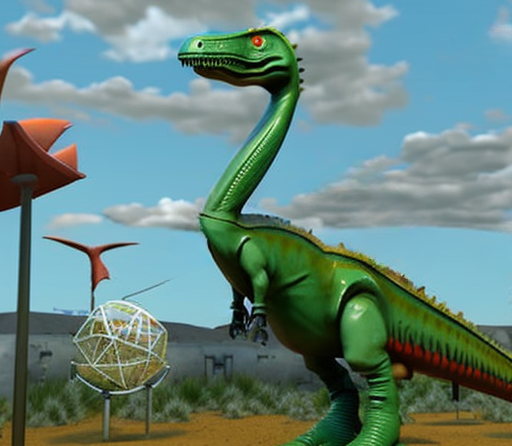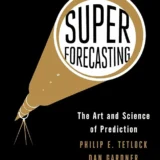
The present (and future) has its attractions, but so does the past. Same goes for the city and the country. The government always needs to know who it rules over, but for some who live in the futuristic city, but long for the country, we ask, WHY does the government need to know? And why can’t we return to the country? Can we?The present (and future) has its attractions, but so does the past. Same goes for the city and the country. The government always needs to know who it rules over, but for some who live in the futuristic city, but long for the country, we ask, WHY does the government need to know? And why can’t we return to the country? Can we?
I hadn’t been looking for a job. I was satisfied balancing my time between a bit of bookkeeping at an accounting firm overseeing what the company mindbots did too well, and getting my hands dirty tending the park next to my apartment. I’d lived that way for years, ever since I moved to Greater Pittsburgh.
Yet, that appeal passed across my screen once, twice, three times, scratching at my soul in an odd way.
2060 Census Counter.
How was that even a job? The government mindbots knew precisely where we all were, and where we weren’t, every given moment. I suspected they knew where I’d be tomorrow, where I’d be next year.
I studied the appeal, its bright orange and yellow colors. In a moment of disregard for my well-tended life, I completed an application.
Almost before I sent it, I received an invitation.
Almost before thinking, I accepted it.
#
It took most of the morning to travel from my apartment to an office building in Old Pittsburgh, the original part of the city where the streets were too narrow and the structures too close together. Claustrophobia crept next to me; I hadn’t realized how comfortable I’d been with the wide avenues and bike lanes and conveyers and green space of my neighborhood.
I escaped the street into the Census Bureau building, made my way to a third floor waiting room filled with furniture and empty of people.
“Madison?” A man half my age bounced down the hallway. He introduced himself as Toby and escorted me to an office with a view of the rambling Ohio River.
It made perfect sense, as Toby explained it, that the Census Bureau didn’t need counters for America’s eight megacities.
The Census Bureau needed counters for its wilderness.
Not everyone had left for the Big Migration. I’d resisted, but I came, and when I did, I left friends behind. The argument was hard to counter. Humanity’s footprint needed to be compressed, with most land left to grow wild.
Those who didn’t migrate, Toby said, remained citizens. Refusing to move to a megacity didn’t exclude them from that right. The government could withhold all the supports it offered to city residents — healthcare, guaranteed jobs, limited work hours, food allowances — but it couldn’t revoke people’s citizenship. And the constitutional requirement for a census count every ten years hadn’t been amended.
I half-listened as Toby discussed the job, its activities, its protocols, its safety procedures. In my mind, I had already said yes. I wanted to visit the holdouts, to see where they lived. To leave Greater Pittsburgh and wander. To not be watched.
Sitting across from Toby, I yearned for an adventure.
I hadn’t left the city since I arrived.
Moving had been the right choice. Between the megacities and a solar shield the size of Texas out in space deflecting the sun’s rays, we hoped we avoided the worst. CO2 levels had stabilized, and we’d had fewer massive storms, all while taking care of people’s needs. The megacity turned out to be everything they promised, everything they’d said it would be.
I believed it all.
And yet, the city had never felt like home. A part of my heart reached out for something we had left behind, but what, I couldn’t name.
When Toby offered me a position in the New Jersey foothills, I considered refusing.
“Might there be another area?” The Southwest’s deserts and mountains. The swamplands and heat of the Mississippi delta. Someplace exotic.
It made perfect sense, as Toby explained it, to send counters familiar with the area, or at least were before their migrations.
I wanted to say no. I intended to say no. But a different word came out of my mouth, and I signed the contract and wished the assignment was somewhere, anywhere, else.
#
On the third day of April, I climbed into the autochopper for the first day of my commute, more than wary of its small size. It lifted and in minutes, we escaped Greater Pittsburgh and soared over the wilds.
When I was a girl, I’d watch from a plane window at the land carved into squares, parcels with boundaries defining yours and mine, mine, and theirs. From the autochopper’s windows, I had a 360-degree view of intermingled forests and fields, not a straight line anywhere. The world was green and thriving and in the throes of spring.
Where had all the fences gone? The roads? The towns?
How quickly our footprints were erased.
Hadn’t that been the point?
On my tablet, I flipped through maps to review what had been there in the before, what the mindbots now detected from satellite and drone images. The town names hadn’t lost their familiarity: Washington and Flemington and Phillipsburg, Asbury and Califon and Long Valley.
I had two months to comb through the land and count all who remained. Two months to document existences.
Based on heat signatures and lights, the mindbots estimated three hundred holdouts. Some clustered in former towns, others more dispersed.
I studied the map of my assigned area, remembering the farms that had been everywhere. Peaches and apples, tomatoes and herbs, pumpkin patches and corn mazes.
I should have started in my hometown.
Instead, I instructed the autochopper to land at the closest location, just across the Delaware River.
I’d start at Phillipsburg and work my way east.
#
Wandering through the aliveness of the New Jersey countryside filled me more than tending the city’s gardens. Daffodils and rhododendrons in bloom caught my eye. I stepped into clearings to surprise a dozen deer and have them scatter. I waded among woody, earthy scents of a near-forgotten childhood and faced down wild dogs with a shock stick.
Every day, I enjoyed these experiences.
Every day, I felt alive.
One cool morning, I found an abandoned Christmas tree farm. I wasted almost the entire day strolling under massive pines and firs, reminiscing about presents and holiday meals and visits with grandparents.
I did my job, too. It was easy to find the holdouts once I knew the signs. A bit of a trail, a carving on a tree, sounds of chickens or dogs or children, the music of chopping wood.
I had been a little scared at first. How would they react to me? What if they refused to talk? But people are people, no matter where they were.
Once I found them, I sent a drone to announce my presence, which usually brought them out. I approached, stated my business, pointed to the official Census Bureau insignia on my bright orange and yellow uniform. If they were hesitant, I’d share that I had been born there, grew up there, had a life there, once.
Most were willing to be counted, to have a reminder that they remained part of the United States of America, even as they offered a snarky comment or dismissed what I represented.
A few refused, cursing at me or brandishing a gun, or both. How they still had bullets, I didn’t know. They’d shuttered those factories years ago.
I had only been shot at once. The woman didn’t aim to hit me, but it was enough for me to climb back into the autochopper and scurry home. Stayed in my apartment for two days. Considered quitting, but I’m not a quitter, and I thought of the people I’d met who hadn’t been so angry, and that was enough to put it behind me and start counting again, if a bit more cautious.
Of those who consented, I duly recorded their names, ages, and coordinates of their domiciles. That’s all the Census Bureau required.
Of those who didn’t, I documented the number of people I saw and their locations.
When I returned home to the stillness of my apartment, a single question haunted me. Did the people living outside the cities leave their nation behind, or did my nation leave behind these people?
#
I spent my days collecting names and listening to stories and realizing how much people in the wilds relied on each other. That’s something the Census Bureau wouldn’t find in their data. Despite their fronts of independence, they weren’t any more resilient than my friends and me. Only differed in the circumstances and supports.
I grew to admire them, but I never imagined wanting to live among them. Getting this close, I knew I’d made the right choice leaving and moving to Greater Pittsburgh.
It’s funny how people who wanted to be so separate couldn’t hold back their curiosities. They seemed desperate for small talk, and that small talk repeated in its rhythms. The changes they had seen after everyone left and how glad they were for others to be gone. Little stories about themselves.
Being left behind presented them with hardships, and they adapted. They lived off the land, relied on a scattering of solar panels to power pumps and lights, had their chickens and goats and dogs. Their comforts were few, at least those I recognized when some invited me into their patched homes for a meal or a cup of water. They’d survived without the government, without the mindbots. And they’d continue to do so. Of everyone I counted, I suspected none would ever migrate. Living this long out here, why move?
So many of the same questions for me. What was living in a megacity like? What about the crowds or the food or the buildings? Did I have any regrets?
That last question was the most difficult. It was the one I deflected.
#
A day became a week, a week a month, and my two-month stint was almost over.
Only one location left.
Counting the holdouts had taken every bit as long as Toby and his mindbots had anticipated. Not that I minded. I enjoyed the easiness, the connections to the land, the chats with people, the memories it stirred. I even liked the days slogging through torrential thunderstorms and sinking ankle-deep into mud, the days the wild dogs chased me.
I valued the long lists I made as I searched: what I missed about childhood (the farms, not feeling packed in), the pleasures of living in Greater Pittsburgh (a sense of a collective, limitless hot water), what city life wasn’t but should be (the closeness of neighbors, having a history).
New Jersey had grown wild, so much so, it made me ashamed to be wistful of what I’d lost, to value what had been in the before. Before we’d corrupted the world and gambled to change how we lived.
Just my hometown remained to be counted. Irrational to have avoided it. My hope that another industrious counter might get to it before me faded. I considered asking Toby to end my count early and have someone else cover my last few spots. Even thought of faking the counts.
Three people, according to the predictions, might remain.
If I were quick, I could get to them all in half a day.
The autochopper landed in a clearing by the Raritan River’s south branch.
It didn’t look right, didn’t look like I wanted it to. Then, I saw the remains of the old mill on the other side of the river, hidden by an overgrowth of vines and brush. Noticed the cliff that rose above it, memories of being in its shadow on late afternoons with my sister and dad gawking at vintage British car shows and fighting knights at Renaissance fairs.
I walked over to the short series of falls, the rushing water drowning out all other sounds, a reflection of a wet spring.
Then I turned, and where the downtown should have been — two rows of two- and three-storey buildings with an ice cream shop and a pizzeria and offices — strong trees grew. Not one sign of the concrete of sidewalks or building foundations remained.
All that time, I had wandered through towns that were no longer. Here, it was personal. Here, I knew what should have been.
In this spot, a community once thrived, where people drank coffee and bought books and sampled odd cheeses and worshipped at churches and practiced parallel parking until they cried.
Another thing to add to my list of city pleasures — without cars, I never had to parallel park.
Why was I so afraid of returning?
Because here were my real memories.
I missed my small-town life.
I took a deep breath, threw my shoulders back, and started north toward a possible dwelling.
Best to move fast.
The smell of burning wood told me I was on the right path.
“What’s your business?” a man’s voice called from behind me.
I threw my hands in the air to show I was no threat. No sense dying this close to finishing. “Census time. Counting who’s out here.”
“They still do that?” His tone betrayed confusion.
“Every ten years. Since 1790.”
“Best go back.”
“If you don’t mind, I just have a few—”
“Madison?”
I turned around. Who’d recognize me after all these years?
A man half-hidden behind a large oak held a rifle. He was as wild as any I’d encountered, scrawny and rough, hair everywhere. There was something to his eyes I didn’t want to recognize.
“Lord,” I whispered, memories lapping like ocean waves, threatening to pull me under. “Rodrigo?”
He lowered his rifle.
Impossible and ridiculous for him to still be out here. I hadn’t suspected. He had refused to leave when I did, but I figured he’d come, eventually. That he didn’t reach out didn’t bother me. I hadn’t looked for him either.
And what could be said that hadn’t been already?
“I expected you sooner. To check on us.”
That last word made my heart skip. “They made it hard to visit.”
“Plenty did. At first.”
Not thirty seconds, and we were back where we’d left off.
“We made our choices. I moved on.” I didn’t say that he hadn’t.
Rodrigo settled his rifle on his shoulder, his eyes angry, his jaw clenched. “Go about your counting, if that’s what you’re doing.”
I considered what was going through his mind. The divorce? My leaving? His not leaving? My not returning? My being there now? All of the above? None of it?
I felt exposed standing before him. I couldn’t place the feeling that churned in my gut. Was it sorrow? Regret? It wasn’t shame. It’d never be shame.
“I have food. Perhaps we could—”
“She’s up there.” Rodrigo pointed behind me. “If you’re interested.”
He walked away, disappearing behind trees.
I kept from calling out, from following.
I waited, and when I realized he wasn’t coming back, I turned to find the path. It pulled at me. My feet took it.
A short walk led me to a waist-high wrought iron fence, rusted and fallen in places. I crossed that boundary and did my best to avoid stepping on headstones overgrown with weeds and brambles.
The path led where I expected.
He’d tended her grave, all these years.
I hadn’t visited once.
Not my main sin, and Rodrigo knew it.
I knelt and touched the granite, traced the patterns of the angel and letters and numbers carved into it.
That boulder in the pit of my stomach, I had never released, and there it was, fresh as the day we laid Ashley in the ground, the priest’s words only noise.
Two years with her hadn’t been enough, but it had been a blessing.
He still tended her grave.
I hadn’t honored her memory.
Which sin was worse?
Long after nightfall, I returned to the autochopper.
Three more days to finish counting.
Three more days to visit my daughter and reclaim what I’d left.
The End










1 Comment